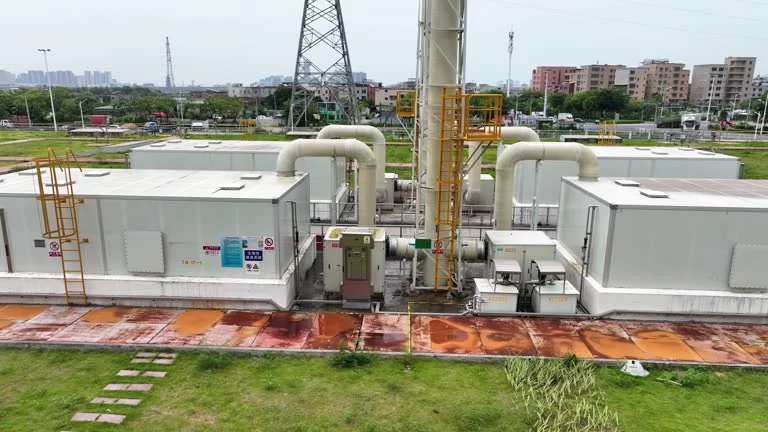How Liquid Cooling Technology is Revolutionizing Energy Storage Systems
Energy storage is a cornerstone of the renewable energy revolution, and as the demand for efficient, large-scale energy storage solutions continues to grow, new technologies are emerging to meet these needs. Among the most promising innovations is liquid cooling technology, which has begun to play a critical role in enhancing the efficiency and reliability of energy storage systems, particularly in commercial and industrial applications.

What is Liquid Cooling Technology?
Liquid cooling technology involves circulating a cooling liquid, typically water or a special coolant, through the energy storage system to dissipate the heat generated during the charging and discharging processes. Unlike traditional air-cooling systems, which rely on fans and heat sinks, liquid cooling offers a more effective and uniform method of maintaining optimal operating temperatures for energy storage components.
Why is Heat Management Important in Energy Storage?
One of the biggest challenges faced by energy storage systems is managing heat. As energy is stored and released, substantial heat is generated, especially in systems with high energy density like lithium-ion batteries. If not properly managed, this heat can lead to inefficiencies, accelerated wear, and even the risk of fires or other safety hazards. Effective heat management ensures that the system operates at peak efficiency, extending the lifespan of the storage units and ensuring safe operation.
Benefits of Liquid Cooling for Energy Storage
- Improved Efficiency
Liquid cooling is far more efficient at removing heat compared to air-cooling. This means energy storage systems can run at higher capacities without overheating, leading to better overall performance and a reduction in energy waste. Extended Lifespan
By keeping the system’s temperature within optimal ranges, liquid cooling reduces the thermal stress on batteries and other components. This helps prevent premature aging, extending the operational lifespan of the energy storage system.
- Space Efficiency
Liquid cooling systems tend to be more compact than air-cooling systems. This space-saving benefit is especially valuable in commercial and industrial environments where space is often at a premium.
Quiet Operation
Unlike air-cooling systems that require large, noisy fans, liquid cooling operates quietly. This can be a significant benefit in environments where noise reduction is essential, such as offices or residential settings.
Scalability
Liquid cooling technology is highly scalable, making it suitable for a wide range of energy storage applications. Whether it’s used for small-scale residential systems or large-scale industrial applications, liquid cooling can be adapted to suit varying energy storage needs.
Applications in Commercial and Industrial Energy Storage
For large-scale commercial and industrial energy storage, where systems are required to operate at high power levels for extended periods, liquid cooling is quickly becoming the preferred solution. Companies are turning to liquid cooling not just for the immediate performance benefits but also for its long-term impact on system reliability and cost-effectiveness.
In commercial enterprises, for example, energy storage systems equipped with liquid cooling can help businesses manage their energy consumption more efficiently, reducing costs associated with peak energy usage and improving the resilience of their energy supply. Industrial facilities, which often rely on complex energy grids, benefit from the added reliability and longevity that liquid-cooled energy storage cabinets provide.
Challenges and Considerations
While liquid cooling offers significant benefits, it is important to consider the complexity of installation and maintenance. Liquid cooling systems require more sophisticated infrastructure than air-cooled systems, including piping, pumps, and heat exchangers. Regular maintenance is essential to ensure that the system remains leak-free and operates at peak efficiency. Additionally, the initial costs for liquid cooling systems can be higher compared to air-cooled alternatives, although the long-term savings in energy efficiency and system longevity often outweigh these upfront expenses.
The Future of Liquid Cooling in Energy Storage
As the demand for renewable energy continues to grow, the role of energy storage will become increasingly important. Liquid cooling technology is expected to play a pivotal role in advancing the efficiency, reliability, and scalability of these systems.
Future innovations may focus on even more advanced coolants, integration with smart energy management platforms, and improved system designs that make liquid cooling more accessible and cost-effective for a broader range of applications.
In conclusion, liquid cooling is revolutionizing the energy storage industry by providing an effective solution to the heat management challenges inherent in high-capacity storage systems. Its benefits in terms of efficiency, reliability, and scalability make it a key technology in the future of energy storage, particularly in commercial and industrial applications.
